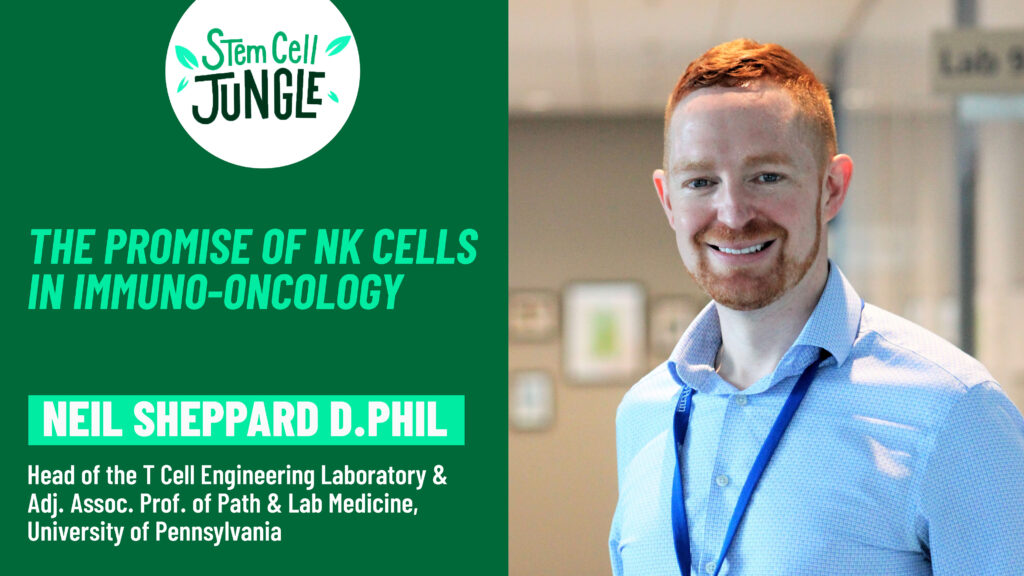Neil Sheppard, D.Phil, Adjunct Associate Professor in the Department of Pathology & Laboratory Medicine, and Head of the T Cell Engineering Lab (TCEL), at the Center for Cellular Immunotherapies (CCI) at the University of Pennsylvania has a 20-year experience in the field of immunotherapies and vaccines. Why is there so much interest in NK cell therapies within the biotech industry ? What is there mode of action in comparison to T cells ? What’s their safety profile ?
Transcript:
Even in the last six/seven years, there’s been an absolute proliferation of biotech companies working predominantly on NK cells and it shows that there’s a lot of capital chasing these ideas they are very promising. So you’re quite right I mean, an NK cell, part of the job of an NK cell, is to recognize transformed cells, usually at an early stage, and shut them down. And primary NK deficiency is actually incredibly rare. So we only have like, medical histories of about fewer than 20 patients who have no NK-cells but the rest of their immune system works. And those people – that it’s not a bubble boy disease – these people do survive generally, survive childhood. But they often die in early adulthood. And they die really for a couple of reasons. One of them is the uncontrolled viral infections typically with the herpes virus family that have become very good at avoiding T cells by down-regulating MHC. So if the cell doesn’t express MHC the T cell can never see it. So NK cells and what they’ve evolved to recognize cells on which MHC has been tampered with and lowered so they’re very good at combating these cells. The other cause of death in these patients is cancer. So by the time cancer has developed, it’s already escaped the NK of the individual patient but our NKs play a really important role in stopping cancer emerging in the first place. So NKs are a cell type where it’s actually probably much better, it’s definitely much better, to use them from an allogeneic source. Because NK cells, one of the ways they decide whether to kill or not is if they recognize their own MHC. They will tend not to kill. And if you take them from an allogeneic donor, its KIRs isn’t matching (killer inhibitory receptor).
If its killer inhibitory receptor is mismatched, it doesn’t have that negative signal. So it’s more likely to kill a tumor cell. The other really cool thing about them is that unlike T-cells,
they don’t mediate GvHD. So if you’re using them in the allogeneic setting, you don’t need to match them to the donor. You don’t need to delete the TCR. There isn’t one. They don’t do GvHD.
And they don’t seem to cause neurotoxicity or cytokine release syndrome. So they seem to be very safe and that will be important because one of the main cost drivers of say CAR-19 therapies that exist today is the chance of severe side effects that could cause hospitalization. The need to receive the therapy in a hospital setting and be checked for immediate reactions before you are discharged.
With the NKs, they seem to be so safe that if this bears up in late phase trials, they could just be simply given in an infusion center, just like a monoclonal antibody for example. So that’s very promising. They can because they recognize tumors directly. You don’t have to put a CAR in them. But they do work even better if you do. But that means that they may be able to prevent antigen escape rather than T cells. Because once a tumor cell has lost the antigen, the T cell can’t see it anymore. NK cells may well still be able to see it through their other mechanisms.
So that’s all really exciting. Then we definitely should be using them in the allo(geneic) source.


